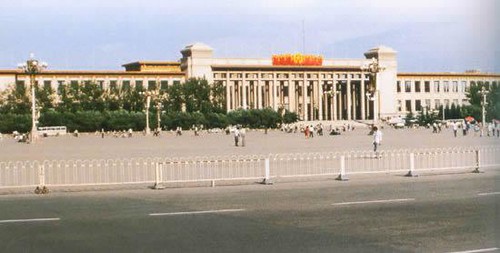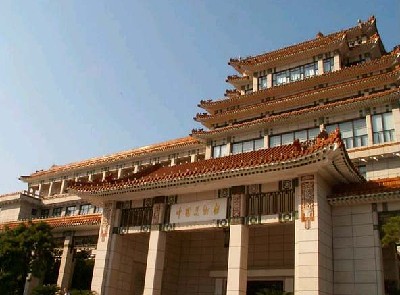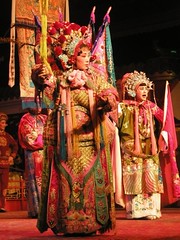| Home > Living in China > Kungfu |
Yip Man and Wing Chun
 |
|
Yip Man |
Yip Man began with his training under Chan Wah Soon, the first of three Wing Chun masters to instruct him. He started his training at a very young age. Chan accepted him as both his youngest and his final student. Yip trained under Chan until Chan's death in 1905, thereafter continuing his Wing Chun with Ng Chung So, one of Chan's top disciples. After two more years of study, Yip left Fatshan for Hong Kong and enrolled in St. Stephen's College at Stanley to pursue an academic education.
While enrolled at St. Stephen's, a classmate, hearing of Yip's training in kung fu, dared him to challenge an old kung fu practitioner living on a boat anchored in Hong Kong Bay. Yip accepted the dare and duly sought out and challenged the old man. The old man accepted his challenge and, despite Yip's growing reputation as an unmatched fighter, beat him handily. Only after his defeat did Yip discover that the old man was actually master Leung Bik, a direct descendant of the original Wing Chun lineage reaching back to Wing Chun herself. After the melee, Leung took Yip as his only student in the art and advanced his Wing Chun even further, both expanding his theoretical grounding in the art and refining his technique.
Yip returned to Fashan at age 24 and found a position as the Captain of the Local Police Patrols of Namhoi. Yip worked as a law enforcement officer for several years, teaching Wing Chun in his spare time, but always, in accordance with Wing Chun tradition, restricting his lessons to a just a few carefully selected students.
Yip continued in this manner until China succumbed to the Communist revolution in 1949. Historical accounts seem to concur that Yip felt forced to flee mainland China and return to British-occupied Hong Kong as a consequence of the communist uprising. In any case, Yip at the age of 54 abandoned his family home and fortune to seek sanctuary off shore.
Reaching Hong Kong alone and destitute, facing certain poverty, Yip Man quickly fell back on his martial arts expertise to earn a living. He decided to break with the Wing Chun tradition of limiting instruction to a select few and opened a public Wing Chun school in the union hall building for restaurant workers.
However Yip Man established his teaching practice in Hong Kong, he managed to create with it the seeds of a martial arts revolution that, through the efforts of some of those he taught, would take root in countries spanning the world. Though Yip Man himself never taught outside the Chinese sphere of influence, his disciples carried his Wing Chun around the globe. Bruce Lee was one of them.
Perhaps no other name is spoken in Wing Chun circles with greater reverence than that of Grandmaster Yip Man. A teacher of the art until his death in 1972, Yip Man is often credited with moving Wing Chun from an obscure fighting system known only in China to a world-renowned style of kung fu studied by thousands.
Source: fighting master
Art
 more
moreA Brief Look at China National
Main gate of China National Museum

China’s National Museum will Open
China's National Museum, under expansion for nearly two years, will

Magic Face Change is Soul of
Sichuan Opera, ChengduSichuan Opera (Chuan

Customs
 more
more



 print
print  email
email  Favorite
Favorite  Transtlate
Transtlate 
